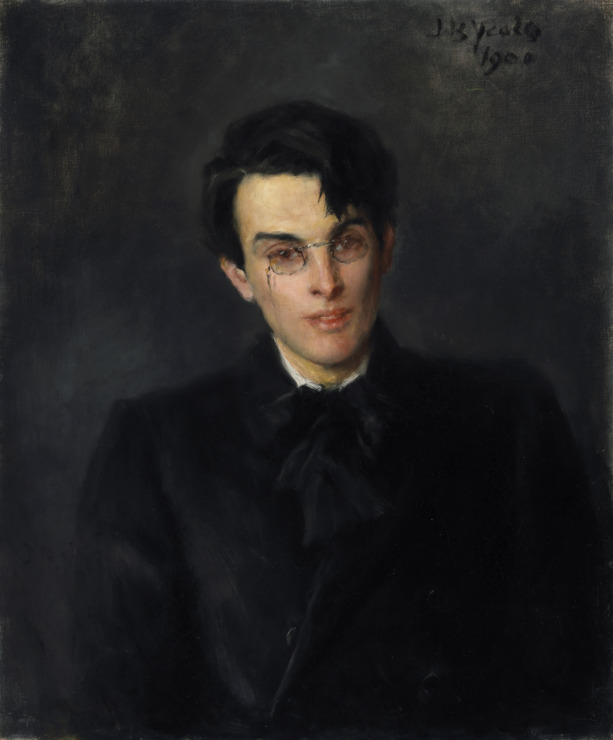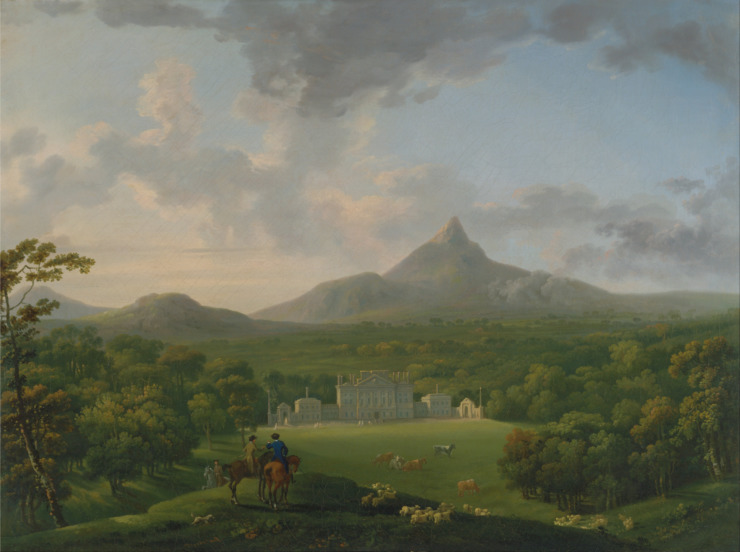To Ireland in the Coming Times
Know, that I would accounted be
True brother of that company,
Who sang to sweeten Ireland’s wrong,
Ballad and story, rann and song;
Nor be I any less of them,
Because the red-rose-bordered hem
Of her, whose history began
Before God made the angelic clan,
Trails all about the written page;
For in the world’s first blossoming age
The light fall of her flying feet
Made Ireland’s heart begin to beat;
And still the starry candles flare
To help her light foot here and there;
And still the thoughts of Ireland brood
Upon her holy quietude.
Nor may I less be counted one
With Davis, Mangan, Ferguson,
Because to him, who ponders well,
My rhymes more than their rhyming tell
Of the dim wisdoms old and deep,
That God gives unto man in sleep.
For the elemental beings go
About my table to and fro.
In flood and fire and clay and wind,
They huddle from man’s pondering mind;
Yet he who treads in austere ways
May surely meet their ancient gaze.
Man ever journeys on with them
After the red-rose-bordered hem.
Ah, faeries, dancing under the moon,
A Druid land, a Druid tune!
While still I may, I write for you
The love I lived, the dream I knew.
From our birthday, until we die,
Is but the winking of an eye;
And we, our singing and our love,
The mariners of night above,
And all the wizard things that go
About my table to and fro.
Are passing on to where may be,
In truth’s consuming ecstasy
No place for love and dream at all;
For God goes by with white foot-fall.
I cast my heart into my rhymes,
That you, in the dim coming times,
May know how my heart went with them
After the red-rose-bordered hem.
-WB Yeats
Enjoy Artistic Representations of “To Ireland in the Coming Times” by WB Yeats

Portrait of William Butler Yeats by John Butler Yeats, 1900.

Powerscourt, County Wicklow, Ireland by George Barret, 1860-1862.
Listen to these Readings of “To Ireland in the Coming Times”
Listen to this Musical Interpretation of “To Ireland in the Coming Times” by WB Yeats
About W.B. Yeats
William Butler Yeats was born in 1865 in Dublin into a family of the Protestant Anglo-Irish landowning class. He lived in Dublin and London during his growing up years. He was very much affected by the politics of the time, as he was a young adult when the protestant minority in power began to be displaced by the predominantly Catholic nationalist movement.
Yeats studied law for a time but eventually moved to London to study art. He was an accomplished playwright, and a founder of the Irish Theatre which was later to become the Abbey Theatre. While he is better known for his poetry, Yeats was awarded the Nobel Prize for Literature in 1923 more for his theatrical works than his verse. He was the first Irishman to be awarded the prize.
His first collection of poems was published in 1889, and there is strong evidence of the influence of Edmund Spenser and Percy Bysshe Shelley. Later, his poetry became more rooted in realism and the physical, with influence of Ezra Pound and William Blake apparent. Common themes in his poetry include mysticism, spiritualism, the occult and Irish identity and nationalism.
Yeats was appointed to the Irish senate in 1922. He was married, but had an ongoing relationship of sorts with a former love, Irish activist and revolutionary Maud Gonne. Known as one of the greatest poets of the 20th century, Yeats died in 1939.
That’s it for To Ireland in the Coming Times!
BUY ‘HOW TO WRITE A FORM POEM’ NOW!
